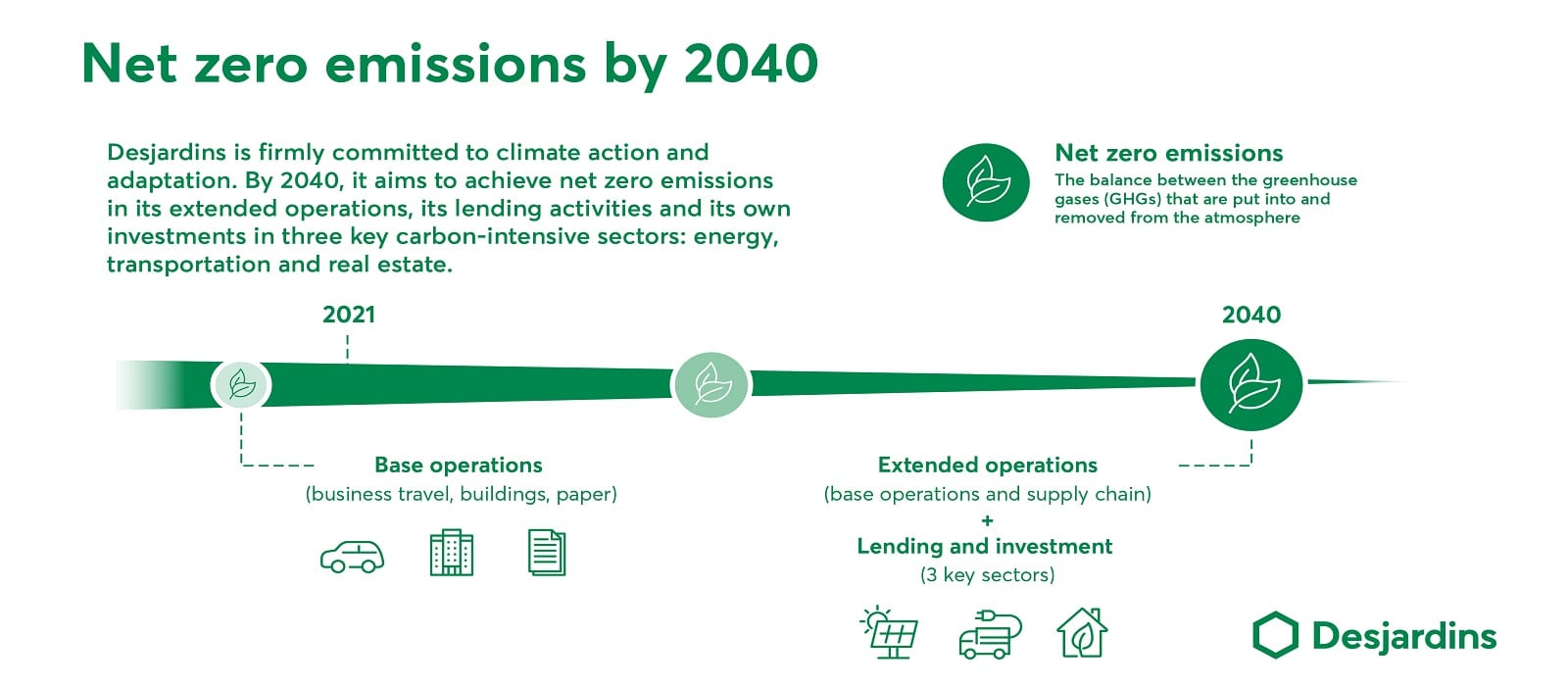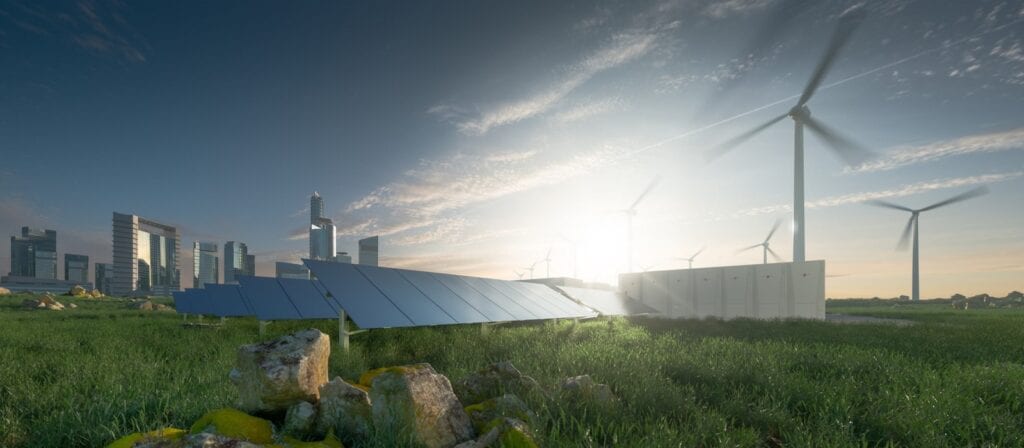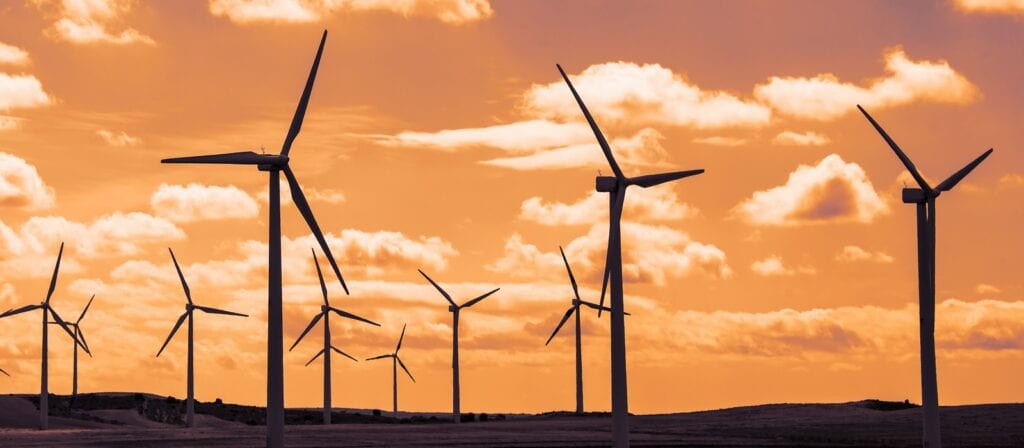Desjardins Group (Canada) has announced an ambitious action plan to achieve net zero emissions by 2040 in its extended operations and in its lending activities and own investments in three key carbon-intensive sectors: energy, transportation and real estate.
In response to growing expectations among members and clients for climate action, the plan builds on concrete measures in place since 2017 and reflects the organisation’s willingness to speed up its climate action and adaptation initiatives and play a leadership role in this area.
“Climate change has undeniable environmental, social and economic impacts. We know that our actions will shape the future of the planet for our children and that’s why we need to step up our efforts to support a just energy transition and lead the way to a low-carbon economy,” said Guy Cormier, President and CEO of Desjardins Group.
For the first five years of its plan leading up to 2040, Desjardins has committed to:
- Focusing on and supporting large corporations in carbon-intensive sectors that:
- Demonstrate solid environmental, social and governance (ESG) performance.
- Factor in climate risk.
- Set credible targets for reducing greenhouse gas (GHG) emissions.
- Increasing its support for the renewable energy sector by:
- Boosting the share allocated to renewables in its lending to energy corporations from 24% in 2020 to 35% in 2025.
- Building a CAD 2 billion investment portfolio in renewable energy infrastructure (an increase of 66% over 2020).
- Providing financial support for five development projects to convert organic waste (largely from agriculture) into renewable energy (biomethanisation).
- Working with about 100 key suppliers to gradually reduce the carbon footprint of its supply chain. Desjardins also recently updated its procurement policy to include ESG factors.
- Training its employees on the principles of sustainable development so they can better support Desjardins’s 7.5 million members and clients. By 2023, 85% of Desjardins’s 48,000 employees will have completed this mandatory training. Employees who design or sell responsible investing products will receive specific training to help them get the word out to their clientele.
“At Desjardins, we want to help our members and clients make well-informed decisions. One of the ways we can do that is by offering products and services that improve their environmental footprint. Through our plan and the actions we’ve taken to date, we’re meeting our members’ and clients’ financial needs while addressing their concerns about the climate crisis,” added Cormier.
Desjardins Group is confident that it can achieve these ambitious goals and will track its progress using the latest science-based climate research and knowledge. The organisation has joined the Partnership for Carbon Accounting Financials to accurately measure its GHG emissions (lending and investing activities) using recognised methods.






